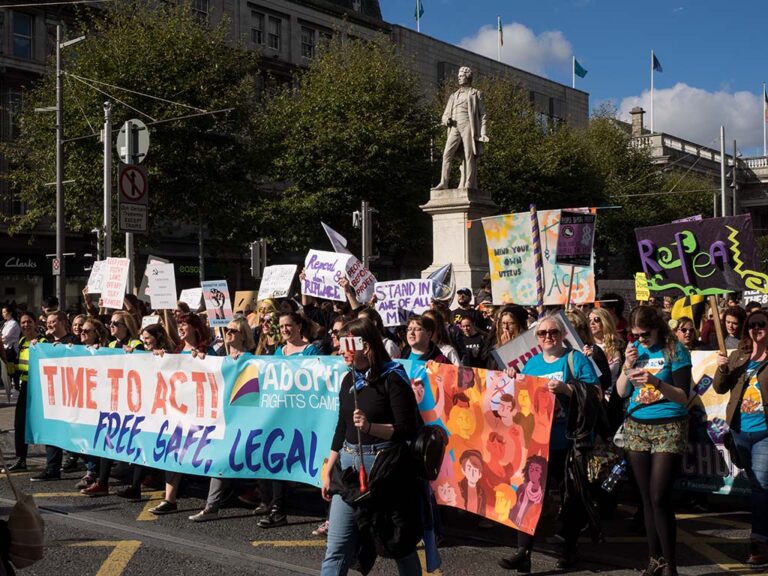
Ron DeSantis assumed the governorship of Florida on January 8, 2019, at the age of 40, becoming the youngest person to hold the office since Park Trammell in 1913 and the youngest Republican ever to do so. His administration has been marked by a consistently conservative approach, underscored by an assertive legislative agenda that advanced swiftly through the Republican-controlled Florida Legislature. Throughout his tenure, DeSantis has strategically expanded the influence of the governor’s office, exerting considerable sway over legislative leaders within his party.
From the outset, DeSantis articulated a clear vision for his administration, quickly addressing issues he considered fundamental to the state’s governance and public welfare. Many of his decisions have drawn nationwide attention and influenced political discourse beyond Florida’s borders.
This overview examines the central themes of his leadership, including his economic strategy, educational initiatives, revisions to election law, shifts in abortion policy, and actions aimed at regulating technology companies. Each policy area illustrates a distinct aspect of his governance philosophy and has contributed to a lasting transformation in the state’s political and legislative landscape.

Inauguration and Early Executive Actions
Upon taking office, Governor DeSantis immediately embarked on a series of significant executive actions that set the tone for his governorship. Just three days into his term, on January 11, he posthumously pardoned the Groveland Four, a group of Black men who had been falsely convicted of rape in 1949. This action underscored a commitment to rectifying historical injustices within the state.
On the same day, Governor DeSantis officially suspended Broward County sheriff Scott Israel. This suspension was ostensibly attributed to Israel’s responses to the mass shootings at Marjory Stoneman Douglas High School. Gregory Tony was subsequently appointed to replace Israel, a decision that highlighted DeSantis’s willingness to make immediate and impactful personnel changes.

Economic Policies and Fiscal Management
During his 2018 gubernatorial campaign, Ron DeSantis made a pledge to lower corporate income taxes in Florida to 5 percent or even less. Throughout his time as governor, corporate income taxes in the state did indeed fall as low as 3.5 percent in 2021. However, by 2022, these taxes had increased to 5.5 percent, yet Florida has generally maintained its low-tax status under his leadership.
DeSantis signed a $91.1 billion budget in June 2019, which was the largest in state history at that time, though he utilized his line-item veto to cut $131 million in appropriations. In June 2021, he approved an even larger budget of $101.5 billion, exercising his line-item veto power to cut $1.5 billion, with $1 billion of that amount being federal American Rescue Plan Act money intended for an emergency response fund. This budget was more than $9 billion higher than Florida’s previous state spending plan.
In the latter half of 2020, Florida’s economy began a swift recovery following the initial impact of the COVID-19 pandemic, with the unemployment rate dropping below 7 percent. DeSantis had previously criticized former governor Rick Scott for what he described as “pointless roadblocks” in the state’s unemployment insurance system, which he argued caused massive backlogs during the pandemic’s early economic disruption. By December 2020, DeSantis ordered the Florida Department of Economic Opportunity to extend unemployment waivers until February 27, 2021. By the end of 2020, the Cato Institute, a libertarian think tank, gave DeSantis a “B” grade in its biennial fiscal policy report on America’s governors, acknowledging his fiscal management. Since May 2022, Florida’s unemployment rate has consistently remained around two percent, which is below the national average.
Additionally, in November 2021, responding to a significant increase in gasoline prices, DeSantis announced his intention to temporarily waive Florida’s gasoline tax in the upcoming 2022 legislative session. The state also recorded a record budget surplus in 2023. In a move to consolidate and streamline economic development efforts, DeSantis reestablished the Florida Department of Commerce in 2023, merging Visit Florida, Enterprise Florida, and the Florida Department of Economic Opportunity into a single entity.

Education Reforms and ‘Culture Wars’
In June 2021, Governor DeSantis led a prominent effort to ban the teaching of critical race theory in Florida public schools, despite it not being part of the existing curriculum. He publicly characterized critical race theory as “teaching kids to hate their country,” aligning with a broader national push by conservatives. The Florida Board of Education subsequently approved this ban on June 10, a move that drew criticism from organizations like the Florida Education Association, which accused the board of attempting to conceal facts from students.
Critics further contended that the ban represented an attempt to “politicize classroom education and whitewash American history.” This legislative focus on education continued with DeSantis’s announcement on September 14, 2021, that Florida would replace the Florida Standards Assessment (FSA) test. The new system, implemented in the 2022–23 school year, involves three smaller tests administered throughout the school year in the fall, winter, and spring.
On December 15, 2021, DeSantis announced a new legislative proposal, the Stop Wrongs to Our kids and Employees Act, widely known as the “Stop WOKE Act.” He framed this bill as a measure to combat “woke indoctrination,” asserting that it would prevent content that could “teach our kids to hate our country or hate each other.” This bill sought to allow parents to sue school districts that taught critical race theory. In August 2022, a federal judge, Mark E. Walker, temporarily halted the enforcement of the act as it applied to businesses, citing violations of the First Amendment and deeming it impermissibly vague. Judge Walker later extended this block to public universities for similar reasons, stating that the legislation was “positively dystopian” because it “officially bans professors from expressing disfavored viewpoints in university classrooms while permitting unfettered expression of the opposite viewpoints.”
DeSantis also targeted programs that he alleged sought to “impose ideological conformity to try to provoke political activism.” In January 2023, he notably banned Advanced Placement (AP) courses on African American studies, claiming that the content was historically inaccurate and in violation of state law, presumably referencing the Stop WOKE Act. The College Board, which oversees AP content, later amended the curriculum.

Election Law and Voting Rights Initiatives
Following the passage of the Voting Rights Restoration for Felons Initiative in November 2018, Governor DeSantis expressed support, stating he was “obligated to faithfully implement [it] as it is defined” upon assuming office. However, controversy arose when he refused to restore voting rights for felons with unpaid fines, a stance that voting rights groups argued was inconsistent with the referendum’s results. This position was ultimately upheld by the Florida Supreme Court and later by the U.S. Court of Appeals for the Eleventh Circuit in a 6–4 ruling.
In April 2019, DeSantis directed Florida’s elections chief to expand the availability of Spanish-language ballots and Spanish assistance for voters. He emphasized that it was “critically important that Spanish-speaking Floridians are able to exercise their right to vote without any language barriers.” However, in June 2019, DeSantis signed a measure designed to make it more difficult to launch successful ballot initiatives, a move that occurred while petition-gathering efforts for initiatives to legalize medical cannabis, increase the minimum wage, and expand Medicaid were underway.
DeSantis also instructed Florida Attorney General Ashley Moody to investigate whether Michael Bloomberg had criminally offered incentives for felons to vote by assisting in a fundraising effort to pay off their financial obligations for the 2020 presidential election. No wrongdoing was found in this investigation. In February 2021, DeSantis announced his support for eliminating ballot drop boxes and imposing stricter limits on voting by mail. These proposed changes included requiring voters to re-register annually to vote by mail and mandating that signatures on mail-in ballots “match the most recent signature on file” rather than any existing signature in the Florida system.
These changes to mail-in voting were particularly noteworthy given that Republicans had historically voted by mail more than Democrats, a trend that reversed in 2020 when Democrats outvoted Republicans by mail. A *Tampa Bay Times* analysis suggested that DeSantis’s own signature match proposal could have led to rejections of his mail-in ballots due to natural variations in his signature over time. Voting rights experts contended that the signature matching proposal had the potential to disenfranchise voters whose signatures varied over time. In 2022, DeSantis signed a bill creating an election police unit to investigate election fraud. In September 2024, he defended the unit’s visits to the homes of Florida voters who had signed an abortion rights ballot initiative, reaffirming his commitment to the unit’s work.

Abortion Policy Changes
Following the U.S. Supreme Court’s decision in *Dobbs v. Jackson Women’s Health Organization*, which effectively overturned *Roe v. Wade*, Governor DeSantis publicly pledged to “expand pro-life protections” within Florida. On April 14, 2022, he signed into law a bill that banned abortions after 15 weeks of pregnancy. This represented a significant change from the previous law, which had allowed abortions up to 24 weeks.
The 15-week ban included specific exceptions for abortions performed beyond this gestational limit if they were deemed necessary to avert a “serious risk” to the pregnant woman’s physical health or in cases of a “fatal fetal abnormality.” However, it notably made no exceptions for circumstances such as rape, human trafficking, incest, or mental health considerations. The law was initially expected to go into effect on July 1, 2022, but its enforcement was temporarily blocked by a state judge who ruled it violated the right to privacy guaranteed by the Florida Constitution. Following DeSantis’s appeal of this ruling, the law went into effect on July 5, pending further judicial review. In January 2023, the Supreme Court of Florida agreed to hear a legal challenge to this law.
In a further move to restrict abortion access, DeSantis signed a six-week abortion ban in April 2023. This legislation included exceptions that would permit abortions up to 15 weeks in cases where the pregnancy resulted from rape, incest, or human trafficking, but it controversially required the woman to provide specific proof of a crime before being granted an abortion under these exceptions. The bill also stipulated that providing an abortion would become a felony punishable by up to five years in prison, banned telemedicine for abortion services, and limited the availability of medication abortion. This six-week ban officially went into effect on May 1, 2024, after the Supreme Court of Florida upheld the earlier 15-week ban on April 1, 2024.

Regulation of Tech Platforms
On February 2, 2021, Governor DeSantis publicly announced his support for legislation aimed at holding tech companies accountable to prevent what he alleged was political censorship. In response to major social media networks removing former President Trump from their platforms, DeSantis and other Florida Republicans advocated for legislation in the Florida legislature that would prohibit tech companies from de-platforming political candidates. However, a federal judge subsequently blocked this law through a preliminary injunction the day before it was set to take effect, ruling that it violated the First Amendment and federal law.
Conversely, when Twitter suspended the account of Rebekah Jones, a critic of the DeSantis administration, for violating rules against spam and platform manipulation, DeSantis’s office publicly applauded the decision, describing it as “long overdue.” DeSantis also voiced support for Elon Musk’s acquisition of Twitter, expressing a belief that it should be deemed “illegal for tech platforms to block or demote content that might otherwise run afoul of their terms of service.” These actions highlighted his consistent stance against what he perceives as biased content moderation by large tech companies.
In 2024, DeSantis signed into law a bill that mandates social media platforms prohibit individuals under 16 years old from creating accounts. This law has drawn significant criticism from digital rights organizations, including Netchoice. Netchoice stated that the law “forces Floridians to hand over sensitive personal information to websites or lose their access to critical information channels,” asserting that this “infringes on Floridians’ First Amendment rights to share and access speech online.” The organization also cited Supreme Court precedent, noting that the Court “has made clear that the government lacks the ‘free-floating power to restrict the ideas to which children may be exposed’.”

LGBT Rights
Governor DeSantis’s administration has taken a firm stance on issues related to LGBT rights, notably through the signing of the Fairness in Women’s Sports Act (SB 1028) on June 1, 2021. This legislation, which became effective on July 1 of the same year, explicitly prohibits transgender girls and women from participating and competing in middle-school, high-school, and college women’s sports competitions within Florida. The law reflects a broader national conversation regarding gender identity in athletics, aligning Florida with states that have adopted similar restrictions.
Further solidifying this legislative direction, Governor DeSantis voiced strong support for the Florida Parental Rights in Education Act (HB1557) in February 2022, a bill widely referred to as the “Don’t Say Gay” law. This act restricts classroom instruction on sexual orientation or gender identity for students from kindergarten through grade 3. DeSantis publicly stated that it was “entirely inappropriate” for educators to discuss these topics with young students, emphasizing parental roles in such sensitive conversations. The bill was signed into law in March 2022 and took effect on July 1, 2022, also incorporating a provision requiring school district personnel to encourage student well-being discussions with parents, not limited to sexual orientation or gender identity.
The legislative efforts around LGBT rights continued to evolve under DeSantis’s leadership. By March 2023, the governor was reportedly considering expanding similar legislation to all grades, indicating a sustained commitment to these policies. On April 19, the state board of education officially extended the act’s restrictions on classroom instruction to include grades 4 through 12, with exceptions only for instruction required by existing state standards or as part of an elective course on reproductive health.

High-Profile Dispute with Disney
A significant and highly public dispute arose between Governor DeSantis’s administration and The Walt Disney Company, a major employer in Florida and owner of Walt Disney World. This conflict escalated after Disney publicly called for the repeal of the Parental Rights in Education Act. In response, Governor DeSantis signed a bill in April 2022 that aimed to eliminate the company’s long-standing special independent district act, which had granted Disney considerable self-governing status, and to replace its Disney-appointed board of overseers.
The dispute deepened with public rhetoric from the governor, who, during a press conference, notably threatened to build a new state prison near the Disney World complex. On April 26, 2023, Disney filed a lawsuit against DeSantis and several other parties, accusing them of retaliating against the company for its protected speech. DeSantis’s attorneys countered on June 26, 2023, by filing a motion to dismiss Disney’s lawsuit, asserting that the governor and state legislators were protected by “legislative immunity.” The federal lawsuit was dismissed on January 31, 2024, although Disney immediately vowed to appeal the decision.
A significant development occurred on March 27, 2024, when Disney reached a settlement in its pending state court lawsuits with Governor DeSantis. The agreement stipulated that Disney would put the appeal of its federal lawsuit on hold while a new development agreement with Florida was negotiated, though no alterations to Disney’s appeal of the federal lawsuit itself were made. This settlement was reached a day after DeSantis replaced two Disney critics on the Central Florida Tourism Oversight District with two Disney supporters and two weeks after a court largely overturned the Parental Rights in Education Act, signaling a potential shift in the contentious relationship.

Policing and Law Enforcement Initiatives
Governor DeSantis has consistently positioned himself as a strong supporter of law enforcement, opposing efforts to defund the police and actively introducing initiatives to “fund the police.” In September 2021, his administration introduced a $5,000 signing bonus for Florida police officers, a strategic move designed to attract out-of-state police recruits and bolster the state’s law enforcement ranks.
A key piece of legislation under his tenure was the Combating Public Disorder Act, which he signed into law in April 2021 after advocating for its passage. This statute was presented as an anti-riot measure, also forbidding intimidation by mobs and penalizing damage to historic properties or memorials, such as the Christopher Columbus statue in downtown Miami that was damaged in 2020. Additionally, the act prohibited publishing personal identifying information online with intent to harm. While DeSantis cited both the George Floyd protests of 2020 and the 2021 United States Capitol attack as justifications, only the former was explicitly mentioned at the bill signing ceremony. Several months after its enactment, a federal judge temporarily blocked the portion of the law introducing a new definition of “riot,” deeming it too vague.
Further demonstrating his commitment to law enforcement and first responders, DeSantis announced on May 5, 2021, that all Florida police officers, firefighters, and paramedics would receive a $1,000 bonus. On December 2, 2021, he unveiled a significant funding proposal of $100 million for the Florida National Guard, earmarking $3.5 million specifically for the reactivation of the Florida State Guard, a volunteer state defense force that had been inactive since 1947. In 2022, DeSantis signed a bill to establish an election police unit dedicated to investigating election fraud, and in September 2024, he publicly defended the unit’s visits to the homes of Florida voters who had signed an abortion rights ballot initiative, reaffirming his commitment to the unit’s work.
Immigration Policies
Governor DeSantis has pursued a robust and often controversial agenda concerning immigration. In June 2019, he signed an anti-“sanctuary city” bill into law, despite the fact that Florida had no recognized sanctuary cities at the time of its enactment. Immigration advocates critically characterized the bill as primarily politically motivated, rather than addressing an existing issue within the state.
Florida subsequently became the twelfth state to adopt legislation that mandates local governments to assist federal immigration-enforcement efforts, further integrating state and federal actions on immigration. In June 2020, DeSantis signed a bill requiring government employers and contractors to utilize E-Verify, a federal system used to confirm employment eligibility, though he had initially called for all employers to be required to use it. Years later, he signed into law an expansion of E-Verify and other related immigration measures, indicating a continued push for stricter employment verification.
In 2021, in response to a surge in illegal immigration, DeSantis’s administration notably ceased cooperation with the Biden administration’s program designed to relocate and resettle migrants in Florida. His administration also allocated $12 million specifically for the purpose of relocating migrants to other states. A high-profile instance of this policy occurred in September 2022, when, following similar actions by Texas Governor Greg Abbott, an agent of DeSantis recruited 50 newly arrived asylum seekers, predominantly from Venezuela, in San Antonio, Texas. These individuals were subsequently flown via two chartered planes to the Crestview, Florida airport, where they did not disembark, before proceeding to Martha’s Vineyard, Massachusetts. The migrants involved later filed a class-action lawsuit against DeSantis, characterizing his treatment of them as “extreme and outrageous, and utterly intolerable in a civilized community.” In May 2023, DeSantis further announced plans to dispatch over 1,000 personnel, including National Guard troops, to Texas to assist in stemming the influx of illegal immigration across the southern border, underscoring his proactive stance on border security.
Hurricane Ian Response
Governor DeSantis received widespread commendation for Florida’s response to Hurricane Ian, a catastrophic storm that became the deadliest hurricane to strike the state in 87 years. As Hurricane Ian approached in September 2022, DeSantis swiftly declared a state of emergency for all of Florida and proactively requested federal aid, actions that were crucial for rapid mobilization and resource allocation ahead of the storm’s impact.
Following the hurricane’s devastation, President Joe Biden traveled to Florida on October 5, 2022, where he met with Governor DeSantis, as well as Senators Marco Rubio and Rick Scott. During a joint press conference held in Fort Myers, President Biden publicly acknowledged DeSantis’s efforts, stating that he had “done a good job” in managing the initial response and recovery efforts. This moment of bipartisan cooperation highlighted the effectiveness of the state’s coordinated approach to disaster relief.
In a notable collaboration, Governor DeSantis partnered with Elon Musk, the CEO of SpaceX and Tesla, Inc., to deploy the Starlink satellite Internet service. This initiative was instrumental in helping to restore critical communication infrastructure across the state, particularly in areas where traditional networks were severely damaged or inoperable. The innovative use of satellite technology underscored the administration’s adaptive strategies in the face of widespread communication outages, contributing significantly to the overall recovery effort.

Complex Environmental Record
Governor DeSantis’s environmental record presents a complex picture, characterized by both support for conservation initiatives and stances that have drawn criticism from environmental advocates. He has supported various programs dedicated to environmental conservation and protection from flooding across Florida. Simultaneously, however, he has openly questioned established climate science, expressed support for fossil fuels, opposed the adoption of renewable energy sources, and sanctioned firms that considered environmental issues in their investment strategies.
A significant point of contention arose when DeSantis refused to accept substantial federal funding under the Inflation Reduction Act and the Infrastructure Investment and Jobs Act. This rejected funding included $346 million intended for homeowner rebates aimed at retrofitting houses to be more energy-efficient, $3 million to combat pollution, and a program designed to help low-income individuals purchase solar panels. Additionally, $24 million from the Infrastructure Investment and Jobs Act designated for improving sewage systems in rural areas was also declined. These rebates had been specifically requested by Florida’s energy office and the state legislature, but DeSantis ultimately vetoed them. All other governors across the nation, including Republicans, accepted their respective allocations, which could have helped average families cut utility bills by 25% and generated jobs.
Despite the initial refusal, three Florida cities did manage to receive some of the funds directly. The decision by DeSantis to decline these funds prompted Rhode Island and Kentucky to request Florida’s unused money for their own states, underscoring the broader implications of his stance. Although he later reversed course and attempted to reclaim some of the rejected home energy rebate funds, his actions signaled a distinct approach to environmental policy and federal funding. In June 2024, DeSantis further demonstrated this by vetoing a bill passed by the State House that would have established a statewide process, managed by the Department of Health, to issue closures and send warnings if bacteria levels in waterways reached unsafe levels.

As Ron DeSantis concludes his second term, the trajectory of his political career remains a subject of intense speculation and analysis. His governorship has undeniably left an indelible mark on Florida, defined by bold conservative policies and a willingness to confront perceived challenges head-on. Whether his future endeavors involve a renewed push for national office or continued influence in state politics, his tenure serves as a compelling case study in the evolving landscape of American conservative governance, where ideological conviction translates into decisive action, shaping the lives of millions and setting precedents that resonate far beyond the state’s sunny shores. The legacy of his time in office will undoubtedly be debated and reevaluated for years to come, but its immediate impact is clear: a governorship that broke norms, stirred debates, and redefined the boundaries of political leadership.





